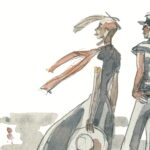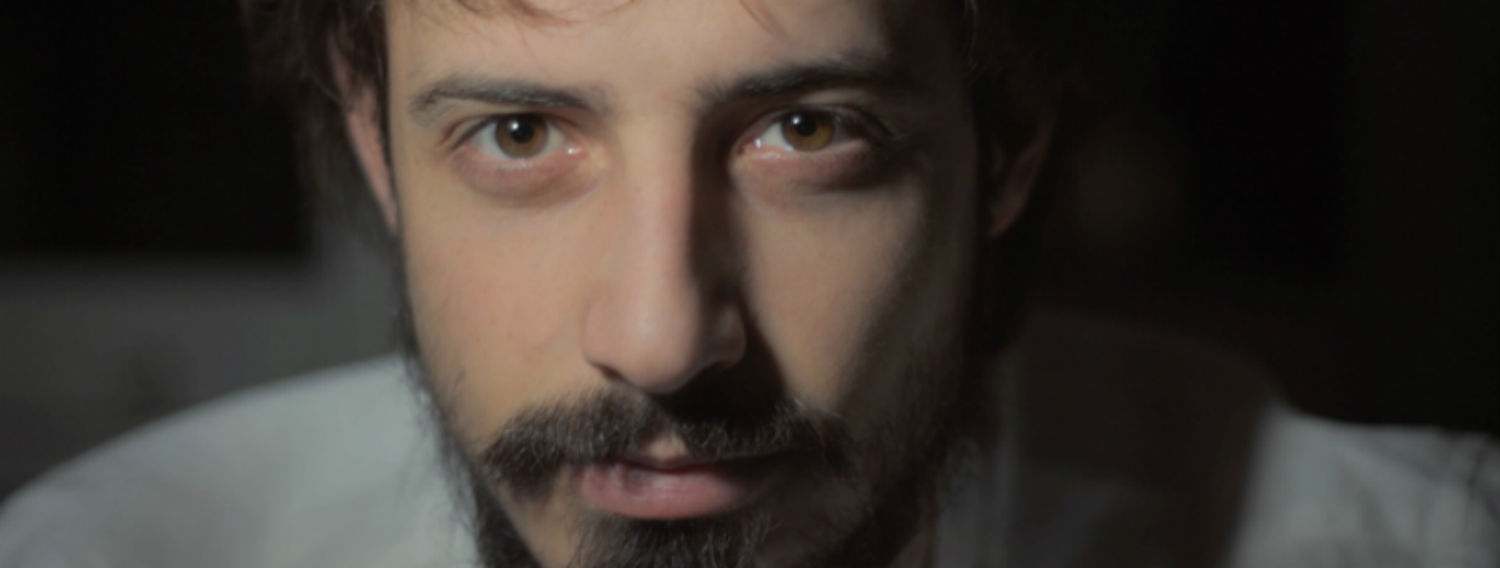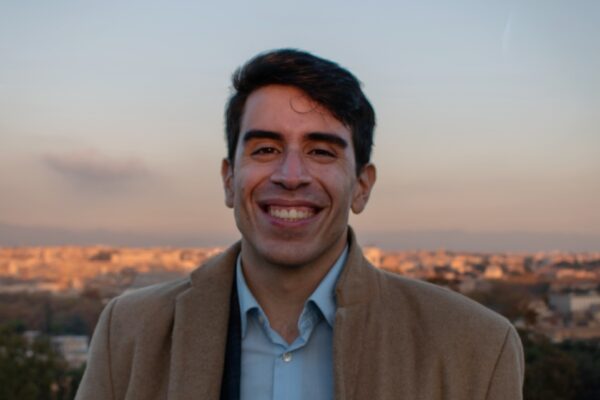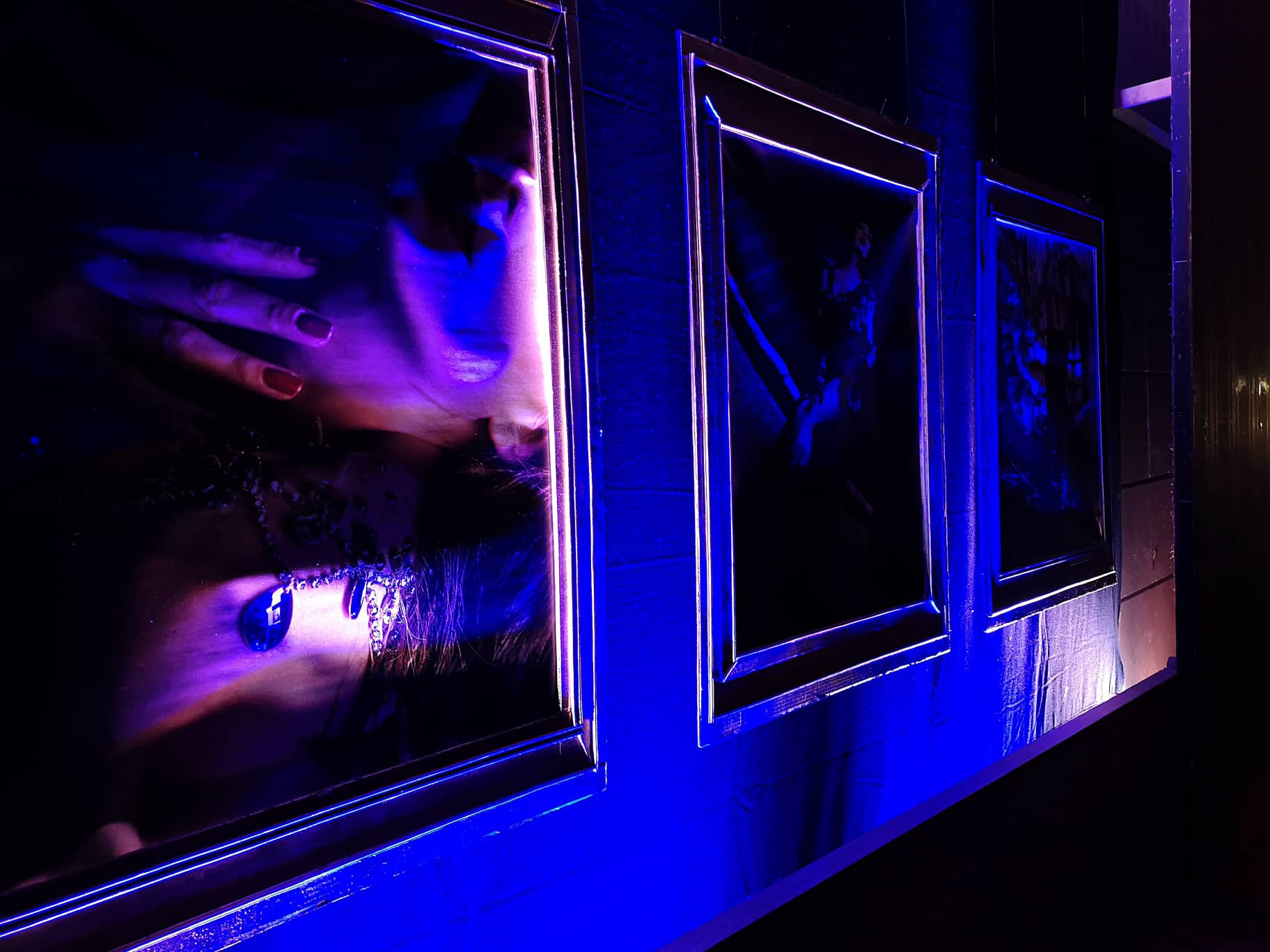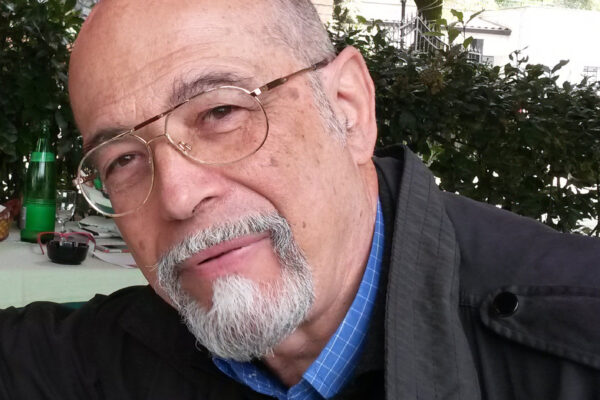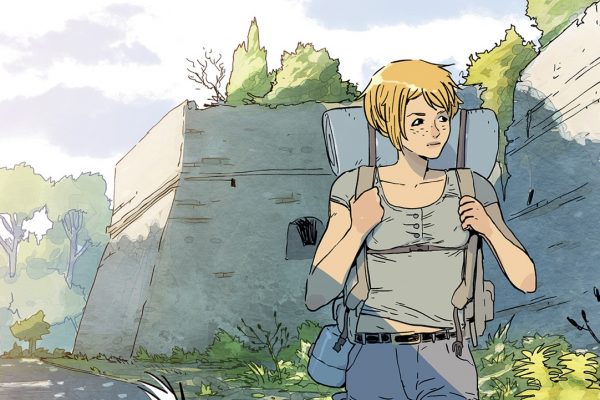The Serendipity Periodical ha incontrato Pier Lorenzo Pisano,
giovanissimo e talentuoso attore e drammaturgo napoletano alla scorsa edizione di Short Theatre 2018 – Provocare Realtà, uno dei più importanti festival dedicato alle performing arts e alla creazione contemporanea, che si è svolto a Roma dal 5 al 15 Settembre 2018. Pier Lorenzo ci ha incontrato tra un’istallazione e uno spettacolo ed ha risposto alle nostre domande. Questo è stato possibile grazie a Fabulamundi. Playwriting Europe: Beyond borders?. Una piattaforma europea volta alla promozione della drammaturgia contemporanea in Europa diffondendo le opere degli artisti selezionati, tutti giovanissimi e promettenti.
Tu sei Napoletano, sei stato a Venezia, sei stato a Roma, sono luoghi in cui l’arte non ti è sicuramente mai mancata. Quali sono stati i momenti che hanno ti hanno segnato maggiormente e ti hanno spinto a trasformare le tue passioni in lavoro? Quando hai deciso che volevi essere un attore, un regista, un drammaturgo?
In realtà è tutto un interesse che si è espanso. Da piccolo facevo dei corsi di teatro, poi gradualmente si è aggiunta una passione alla regia. A Napoli andavo al teatro parrocchiale al Vomero, alla chiesa dei Fiorentini vicino Piazza degli artisti, ma il mio primissimo incontro con il teatro è stato tramite una serie di racconti: mio nonno me ne parlava tanto. Raccontava che vendeva le sigarette sfuse per comprarsi i biglietti per vedere Totò, ma non per vedere Totò, ma perché prima dello spettacolo c’era l’avant-spettacolo con le ragazze con le gambe scoperte. Ma anche mia madre mi raccontava che andava a vedere Eduardo e che lui dopo gli spettacoli veniva chiamato fuori perché raccontasse le poesie, e lui, che era già vecchietto recitava le poesie. Questi racconti mi hanno incuriosito, pensavo che questo teatro fosse un luogo molto strano visto che succedevano queste cose. Per quanto riguarda la scrittura ho sempre scritto, un giorno ho voluto provare a scrivere per il teatro, ma ho la passione per la scrittura da sempre. Per la regia, invece, mi ricordo che erano appena uscite le prime reflex, o comunque le prime macchine fotografiche economiche e ho iniziato la mia autoformazione, ho fatto un corto e l’ho mandato al Centro Sperimentale, dove mi hanno preso. Per la regia teatrale, sono uno spettatore assiduo, vedo tutto, le idee vengono da lì.
Quindi ami anche vedere il teatro e non essere solo coinvolto attivamente. Cosa guardi più volentieri?
Ma di tutto, vado soprattutto ai festival. Mi piace la biennale di Venezia, che ha teatro e arte in generale così faccio un pieno di arte; la biennale di architettura è piena di belle idee per le scenografie.
So che sei stato tanto a Londra e a Parigi. L’estero comunque è un’esperienza formativa, ma non sempre facile stare in un posto dove si parla una lingua diversa, gli ambienti sono diversi e nuovi, vuoi raccontarci di un momento in cui hai pensato “adesso mollo e torno a casa” e un momento in cui hai detto “no, questo è quello che devo fare. Niente può fermarmi”?
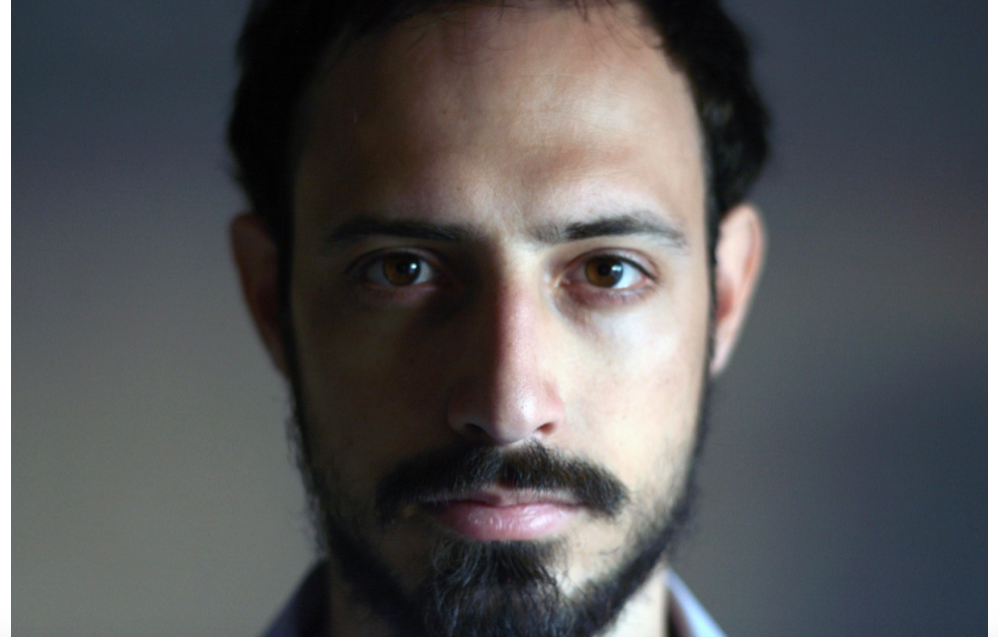
Sì, a Londra sono stato come attore, e lì è stato molto più difficile per via della lingua, che è la cosa principale. Conosco persone che si sono interamente formate e Londra e che sono praticamente bilingue e che comunque hanno difficoltà a trovare lavoro perché finiscono col fare il ruolo dell’italiano stereotipato, lì fa un po’ più paura essere un attore. Come autore è stato diverso, qui parliamo della mia esperienza a Parigi. Io non capisco assolutamente nulla di francese, zero. Sentivo il mio testo recitato e tradotto da qualcuno e magari ricollegavo qualcosa. Ma alla fine, in generale, andare all’estero è bellissimo, è anche consolante vedere che persone che sentono il tuo testo in una lingua diversa ridono per le stesse battute -innanzitutto quindi sono tradotte bene- però poi è anche bello pensare che un prodotto culturale fatto da te arriva ad avere una vita lunghissima perché prima o poi qualcuno lo traduce e lo mette in scena. Io partecipo al processo traduttivo se conosco la lingua in cui il mio testo viene tradotto. Ma per quanto riguarda il francese è stata la traduttrice a considerarmi molto per ricevere chiarimenti e cose del genere. In ogni modo l’esperienza estera è molto più stimolante che spaventosa.
C’è un consiglio che daresti ad una persona più giovane di te che vuole intraprendere la tua carriera, che tu non hai ricevuto ma che avresti voluto?
P: Non mi sento tanto in grado di dare consigli. Forse una cosa che può aiutare chiunque è darsi delle scadenze. Io non so rispettare le scadenze, ma mi ha aiutato molto darmi una sorta di disciplina con i bandi, quelli per la scrittura, premi, produzioni. Ma non necessariamente per partecipare, anche solo per scrivere. Li collezionavo, segnavo le scadenze e scrivevo. Sceglievo quelli che mi interessava e scrivevo. Se ero contento del risultato alla fine lo inviavo anche, altrimenti lo tenevo solo come allenamento. Ma davvero, non mi sento pronto a dare consigli oggi.
Tu però, per quanto giovane, hai già avuto dei premi e delle soddisfazioni. Hai vinto un premio per “Per il tuo bene” che parla di famiglia. Secondo te com’è la famiglia di oggi e quanto si avvicina a quella che hai creato nel tuo testo?
La famiglia secondo me è un contenitore. La mia visione personale è che contiene tutte le storie. Se hai una storia che ha un inizio e una fine contiene sicuramente una dinamica familiare. Il testo che ho scritto parla di famiglia, ma si può parlare di famiglia attraverso altre cose. Famiglia è un tema facile da scrivere, ma difficile da affrontare, in Italia si scrive un sacco di famiglia. La cosa che è andata bene nel mio testo, almeno secondo me è che ho scritto di famiglia in un modo molto personale, talmente tanto che poi arriva a risuonare il mio personale nel personale di altre persone.
Una sorta di legame empatico?
Sì, prendo una cosa unica in cui ci si riconosce tantissimo, nonostante usi figure così archetipiche come una madre, un figlio, le metti in situazioni così precise che magari lo spettatore pensa “non mi è successo, ma mi potrebbe tranquillamente succedere con mia madre” per quanto siano in un loro luogo, in un personale, tutti potrebbero vedercisi. È paradossale, ma più una cosa è precisa, più è aperta. Non sono molto concreto forse, ti faccio un esempio: parlavo con una persona l’altro giorno e facevo una battuta su un film di Sorrentino e parlavamo dell’odore delle case dei vecchi, allora gli ho chiesto “ma secondo te qual è l’odore delle case dei nonni?” e lui mi ha detto “secondo me è l’odore di frutta, perché in tutte le case dei nonni c’è il vassoio di frutta fresca” e questo è quello che cerco di dire. Puoi descrivere una casa con il suo vassoio di frutta e immediatamente ricordi anche tu che i tuoi nonni hanno il vassoio di frutta, che è diverso da quello dei miei nonni o quelli del mio amico. Queste sono le immagini che cerco di dare nel testo. Poi forse il fatto che parla anche di come funzionano i rapporti in generale, tra chi è fuori dalla famiglia e chi è dentro. Il discorso delle dinamiche di rapporto si può allargare.
Quando riandrai in scena?
A gennaio, l’8 al 20 a Modena, al Teatro delle Passioni e dal 22 gennaio al 23 febbraio Bologna all’Arena del Sole.

Tu parli anche del dolore e della sopravvivenza in “Fratelli”, un altro tuo testo, tu hai trovato un modo per sopravvivere al dolore?
Ti dirò non ho ancora trovato una risposta. Il dolore non è fatto di cose che vanno via. Sono cicatrici che rimangono. “Fratelli” è un’elaborazione del dolore, ma non c’è una catarsi. È un andare indietro e quindi affondare nel dolore in modo sempre più profondo. Non ci si libera. Il finale dello spettacolo è interrotto a metà, proprio perché non c’è una risposta univoca.
Una domanda da vecchiaccio, secondo te qual è il destino del teatro in questo momento? Rispetto anche a tutto quello che sta succedendo con i social e il loro predominio. Secondo te distruggeranno il teatro?
Io in realtà sono ottimista. Il teatro c’è sempre stato, è sopravvissuto alla televisione al cinema può sopravvivere a tutto, magari sarà fatto in condizioni sempre più tremende, sempre più off, per strada, ma è e rimane un’esigenza. Magari cambieranno le forme, ci saranno più situazioni aperte ma sono fiducioso. Purtroppo, la questione economica influisce sulle prove, sul tempo da dedicare alla preparazione dello spettacolo, ma Peter Brook dice che il teatro si può fare ovunque “se non avete i soldi fatelo per strada”. Quando in Grecia c’è stata la crisi nera il teatro è rimasto in pedi, tutti andavano a teatro.
Ti voglio salutare con la domanda classica di prassi sul futuro: dove stai andando? Quali sono i tuoi prossimi progetti? Puoi dirci qualcosa?
Ora sto scrivendo qualcosa per il cinema, ho un paio di testi teatrali che sto iniziando, ma ho tante cose in sospeso che per scaramanzia non ti dico. Vorrei tentare la riscrittura, vorrei riscrivere un classico, ed è una cosa che non ho mai fatto. Ma sto cercando di scrivere in modi diversi, voglio tentare cose nuove e sperimentare
Intervista di
Martina Russo
English Version
Thanks to Fabulamundi. Playwriting Europe: Beyond borders?, a reality for young and talented playwriters from all over Europe, The Serendipity periodical met Pier Lorenzo Pisano, a young talented Neapolitan playwiter and actor who gave us some of his time and answered our questions. We met at the last edition of Short Theatre 2018 – Provocare Realtà, a festival dedicated to performing arts, held in Rome from Sept. 5 to Sept. 15, 2018.
You are Neapolitan, have been to Venice, Rome, all places filled with art. Which are the moments you felt more connected to arts and that inspired you to begin a career as actor, director and playwriter?
Actually, I can tell my interest started from a spark and developed from there. When I was a child I used to attend drama classes. In Naples I used to go to the church theatre, there was a church next to Piazza degli Artisti, the Fiorentini Church, and I used to go there and do some amateur theatre. My very first interest was through stories: my grandfather talker me about theatre a lot. He used to sell cigars to buy tickets to see Totò, but not really to see him, more to see the girls performing before him, who performed with their bare legs. My mom, on the other hand, used to tell me she went seeing Eduardo, and at the end of his performances people would call out for him so that he kept performing telling them poems. That’s what attracted me, I remember thinking that theatre should have been a strange place. For what concerns writing, I have always written. Someday I just tried to write for theatre, but it’s a passion I’ve always had. As for directing, I remember that had been put on market the first economic Reflex. I bought one and I started my self-training. I did a short film and sent it to the Centro Sperimentale, where I was admitted. Finally, for directing in theatre, well, I love seeing performances, it gives tons of ideas.
You also love being in the audience, then. What do you like the most?
Everything. Festivals, mostly. I really enjoy Venezia’s Biennale that connects theatre and arts in general, that’s a full immersion. The Biennale for architecture is a place to gather great ideas for scenes.
I know you’ve been to London and Paris. An experience abroad as formative as it is, is also not really easy since you find yourself in places where culture and language are not your own. Can you tell us a story when you wanted to give up, and another when you were reassured your choice was definitely right?
Yes, I have been in London as an actor. It has been harder there mostly because of the language, which is the main issue. I know people who did their whole acting formation in London, are practically bilingual and still have problems working because they end up being the stereotypical Italian. That’s scary in such context being an actor. As an author has been different -that’s my experience in Paris-. I do not speak French, at all. I could hear my work performed and I could grasp something from time to time. Doing the math, an experience abroad is great. it’s reassuring seeing people laughing at the same jokes in different languages, it also makes you think about how long can the life of such a cultural project be. I partecipate in the translation project if I know the target language. As for French, the translator cared very much about my opinion and kept me updated and asked for my advice often. Anyway I think that going abroad is much more fulfilling than scary.
Which advice would you give to a younger actor and dramatist, which you didn’t have but might have been useful?
I really don’t feel like giving advice. Maybe something helpful might be giving yourself deadlines. I can’t really follow deadlines but self discipline has been helpful. I collected Calls for Writing and Playwriting and wrote about the chosen themes within a certain time. That was my training. At the end of the day, I would also send the final work, but only if I was happy about it. But really, I can’t give advice at this time of my life.
Though you are very young, you have already won prizes and got your satisfactions. You have won an award for Per il tuo bene (litt. For your own sake) that talks about family. In your opinion, how is today’s family and how close is it to the one you created in your text?
In my opinion, family is a container. My personal vision is that family as concept contains all the stories. If you have a story that has a beginning and an end it certainly contains family dynamics. The text I wrote is about family, but we can talk about family through other things. Family is a theme easy to write about, but difficult to deal with. In Italy we write a lot about family. Probably, the thing that made my play successful, is that I wrote about family in a very personal way, so much that my own personal experience melts with the personal experience of other people.
Like an empathic connection?
Yes, I take a unique thing in which people can recognize, despite using such archetypal figures as a mother, a child, I put them in such precise situations that maybe the audience happened to think “it did not happen to me, but this could easily happen with my mother”. It is paradoxical, but the more precise is something, the more open it is. I’m not very concrete perhaps, I’ll give you an example: I was talking with someone the other day and I made a joke on a film by Sorrentino and we talked about the smell of old houses, then I asked him “what do you think is the smell of grandparents ‘houses?” and he told me “I think it’s the smell of fruit, because in all the grandparents’ houses there’s a tray of fresh fruit”; that’s what I’m trying to say. You can describe a house with its fruit tray and immediately remember that your grandparents have the fruit tray, which is different from that of my grandparents or my friend’s. These are the images I try to give in the text. Moreover, it also talks about how relationships work in general, among people outside and inside families. The discussion of relationship dynamics can be extended.
When will I go on stage again?
In January, from 8 to 20 in Modena, at the Teatro delle Passioni and from Jan. 22 to Feb 23 in Bologna, at the Arena del Sole.
You also talk about pain and survival in Fratelli (litt. Brothers), another work of yours, have you found a way to survive pain, yet?
I have not found an answer yet. Pain is not made of things that leave. They are scars that remain. Fratelli is an elaboration of pain, but there is no catharsis. It is a continuous going back and therefore sinking in pain in an ever deeper way. You do not get free. The finale of the show is interrupted, I’d dare to say open. That’s because there is no one single answer.
A question for an older soul: what is, according to you, the destiny of theater right now? Also in comparison with all the chaos going on with social networks and their dominance. Do you think they will destroy the art of theater?
I am actually pretty optimistic. Theater has always been there, it has survived the boom of television and cinema. It can survive anything. Maybe the condition in which it will survive will be worse and worse, more and more off, probably on the streets, but theatre is and remains a necessity. Maybe the shapes will change, there will be more open situations but I’m confident. Unfortunately, the economic issue affects the rehearsals, which become shorter due to lack of funds to pay the actors, but Peter Brook says that theater can be done anywhere “if you do not have money, do it on the streets”. When there was the black crisis in Greece, theater remained, everyone used to go to the theater.
I want to greet you with an expected question on the future: where are you going? What are your next projects? Can you tell us something?
Now I’ve been writing something for the cinema. I have a couple of theatrical texts that I’m beginning those days, but I also have so many things postponed that I won’t tell you for superstition. I would like to try rewriting, I would like to rewrite a classic, and it’s something I’ve never done before. But I’m trying to write in different ways, I want to try new things and experiment.
Translation by
Martina Russo

